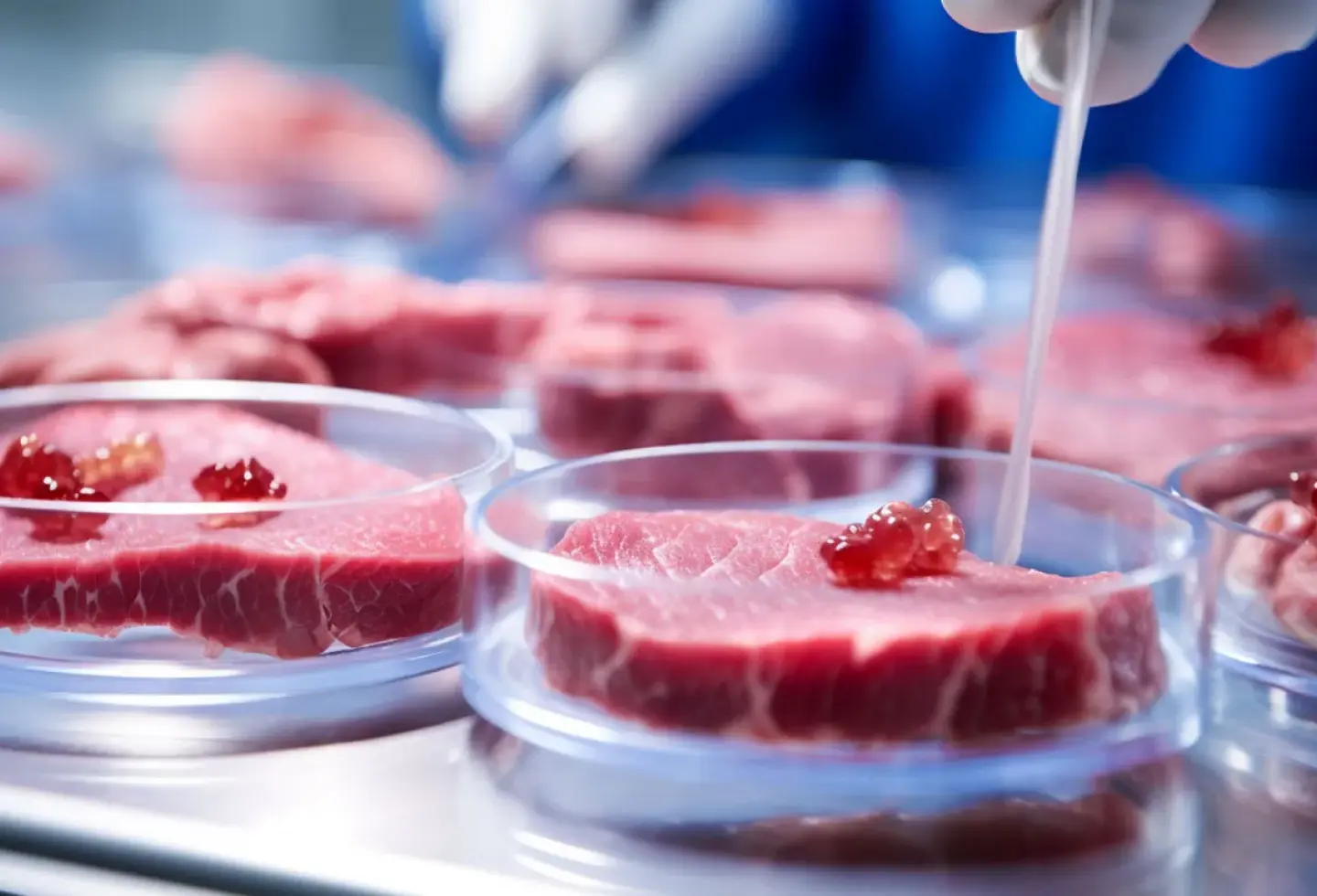Humanity started with hunting and gathering, food is the driving source of civilization. It must come as no surprise, then, that the modern food industry holds a significant place in the business universe.
Both plant based and animal based food production is highly extensive in the industry and are constantly evolving. As science and technology give rise to innovation, new methods come into play.
This piece is focused on the meat industry, more specifically, Lab-grown meat companies—a truly revolutionary idea.
Extraordinarily, “cultured meat” as it is also known, uses animal cells to grow the product in a lab. This completely eliminates the need to raise farm animals.
Sustainability
The way we produce meat today has major downsides for the environment. Raising livestock like cows, pigs, and chickens requires vast amounts of land, water, and feed.
The animal farming process also leads to high levels of pollution from things like animal waste runoff and greenhouse gas emissions.
Recent studies show that this lab-grown meat approach could drastically cut back on the environmental toll of traditional animal agriculture.
Estimates indicate it will need much less land, water, and other resources compared to conventional meat production. The process also produces far less harmful pollution and fewer gas emissions that contribute to climate change.
A recent report from the Good Food Institute revealed some amazing environmental benefits of cultivated meat compared to traditional meat from livestock.
The study found that if cultivated meat is produced using renewable energy sources like solar or wind power, it could cut greenhouse gas emissions by a whopping 92% compared to normal beef from cows. Greenhouse gases like carbon dioxide are a major driver of climate change.
Lab-Grown Meat Companies’ Overview
Lab-grown meat, also called cultured or cultivated meat, is genuine animal meat produced by harvesting muscle cells painlessly from living creatures and nurturing them to grow into fresh meat.
This groundbreaking form of cellular agriculture promises huge benefits—meat production without the environmental and ethical impacts of industrial farming.
Major players like Good Meat, Upside Foods, and Aleph Farms are racing ahead with game-changing biotech solutions to make this a reality. The allure? Slashing greenhouse emissions, water usage, and animal suffering compared to factory farming.
Roadmap of Lab-grown Meat Companies to Commercialization
The big breakthrough came in 2020, when Singapore granted regulatory approval for cultured chicken to be sold to consumers by Good Meat.
Three years later, the US government followed suit by greenlighting cultivated chicken from Upside Foods and Good Meat in key states.
However, scaling production remains a major challenge.
Significant hurdles remain to bring it to parity with intensive animal agriculture, which benefits from decades of economies of scale.
Winning over consumers may prove just as vital.
Companies are exploring premium, guilt-free marketing to affluent urban consumers, while partnerships with fast food giants could make cultured meat mainstream and affordable for all.
Innovations Driving the Industry
Advances in bioengineering, cell line development, and bioreactor design are allowing cultivated meat producers to dramatically enhance production efficiency. For example, Upside Foods’ stem cell lines can now replicate indefinitely, slashing costs.
Another game-changer has been the shift away from controversial fetal bovine serum to greener, slaughter-free growth media like those developed by Ivy Farm. These animal-free formulas enable more ethically cultured meat production.
Its unique advantages—slashing emissions and land use while averting fecal contamination—could make it an irresistible replacement.
Cultured meat’s rise would mark a seismic shift in how protein is produced. Less land devoted to animal grazing could free up space for rewilding efforts. Local cultivators may even sprout up to serve regional communities with fresh, cultured meat.
For incumbent agribusiness giants and industrial meat processors, the threat of disruption looms as startups leverage biology to out-innovate them.
Closing
With the increasing urgency of climate management, every business is looking into transforming itself based on contributing to a good ecosystem.
The food industry plays a huge role in climate change. Like any other industry, it emits greenhouse gases.
Lab-grown meat production is the new climate-smart method that provides an alternative to traditional farming.
Accepting non-traditional methods into our normal lives can cause skepticism. However, like all innovation, challenges will be a part of the process.
Embracing innovation for the betterment of society as a whole furthers communities and in a bigger picture, is beneficial to the entire world.
There will come a time when truly sustainable practices like this will become the default. Until that day comes, it’s safe to say that getting educated about these new ideas goes a long way.
As individuals on this journey, let’s welcome innovation onto our dinner plates!



